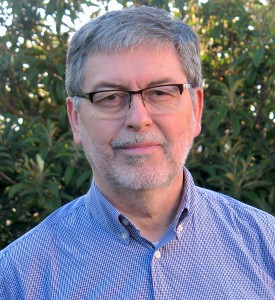
"We chose to work in mining because it is the most advanced industry in risk management in Chile and much of the world. We consider mining to be part of the DNA of Chile, and miners are constantly looking to improve in risk prevention."
Share
What is Antirion’s business?
Antirion provides risk management services through a web-based software platform. It deals mainly with the strategic and operational risk management of safety, occupational health, and environment. This translates into healthy workers returning to their homes and a more protected environment. Our company started as a consulting service and then we transformed into a software company. We have 12 large mining clients and at least 300 contractors who serve these mining clients. Almost 90% of our company is dedicated to the mining industry. We chose to work in mining because it is the most advanced industry in risk management in Chile and much of the world. We consider mining to be part of the DNA of Chile, and miners are constantly looking to improve in risk prevention.
How does your software specifically mitigate risk?
The software is a management tool that serves managers, supervisors, workers, and health and safety professionals. A supervisor, for example, must be in charge of hundreds of safety points, so it is important to see how the controls are administered and have regular verifications. The software helps supervisors stay focused on critical hazards, which are monitored by accurate performance indicators. In most cases, it would be impossible to manage such controls without the help of software like ours. In essence, Antirion is an information manager that helps people make better preventive decisions.
What explains your success in the mining industry?
We are a profitable and debt-free company from the first day we entered the market. We were not affected by the fall in commodity prices because our software is very affordable, and also because risk management is not something that companies can stop attending to from one day to the next. Also, being profitable gives one some freedom to innovate.
Do you think the use of data technology is going to be more prevalent in the future?
We believe that cloud technologies are here to stay. When we entered the cloud in 2010, virtually no one in Chile used it. Today, more people understand the cloud and customers are requesting more services. We have had to hire more people to expand our capacity and to keep up with the pace of development demanded by the mining industry, which is certainly moving forward technologically, including in the mobile application space.
What is Antirion’s business?
Antirion provides risk management services through a web-based software platform. It deals mainly with the strategic and operational risk management of safety, occupational health, and environment. This translates into healthy workers returning to their homes and a more protected environment. Our company started as a consulting service and then we transformed into a software company. We have 12 large mining clients and at least 300 contractors who serve these mining clients. Almost 90% of our company is dedicated to the mining industry. We chose to work in mining because it is the most advanced industry in risk management in Chile and much of the world. We consider mining to be part of the DNA of Chile, and miners are constantly looking to improve in risk prevention.
How does your software specifically mitigate risk?
The software is a management tool that serves managers, supervisors, workers, and health and safety professionals. A supervisor, for example, must be in charge of hundreds of safety points, so it is important to see how the controls are administered and have regular verifications. The software helps supervisors stay focused on critical hazards, which are monitored by accurate performance indicators. In most cases, it would be impossible to manage such controls without the help of software like ours. In essence, Antirion is an information manager that helps people make better preventive decisions.
What explains your success in the mining industry?
We are a profitable and debt-free company from the first day we entered the market. We were not affected by the fall in commodity prices because our software is very affordable, and also because risk management is not something that companies can stop attending to from one day to the next. Also, being profitable gives one some freedom to innovate.
Do you think the use of data technology is going to be more prevalent in the future?
We believe that cloud technologies are here to stay. When we entered the cloud in 2010, virtually no one in Chile used it. Today, more people understand the cloud and customers are requesting more services. We have had to hire more people to expand our capacity and to keep up with the pace of development demanded by the mining industry, which is certainly moving forward technologically, including in the mobile application space.